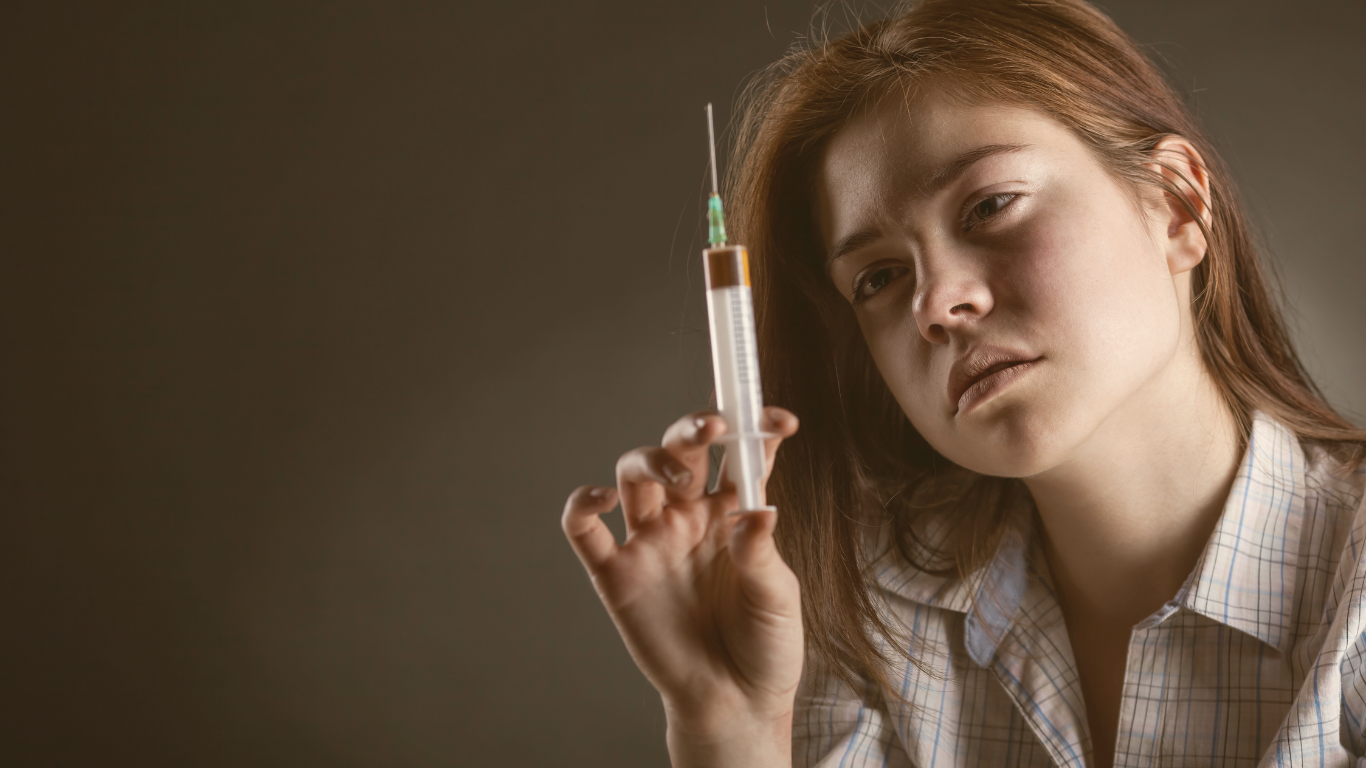Methadone Addiction Treatment in Atlanta, GA

Methadone addiction presents unique challenges that require specialized care and comprehensive treatment approaches. For those needing methadone addiction treatment in Atlanta, Georgia, finding the right support system is crucial for achieving long-term recovery.
MARR Treatment Centers offers a place of hope and recovery for individuals seeking drug rehab from methadone addiction, offering evidence-based treatment programs designed to address the complex nature of opioid use disorder while providing expert care throughout the recovery journey.
Why Choose MARR for Addiction Recovery?
Founded in 1975, MARR Treatment Centers is an established leader in addiction treatment throughout the Atlanta area. With over four decades of experience, we offer specialized programs designed to address all aspects of addiction—physical, psychological, social, and spiritual—providing a holistic approach to recovery that extends far beyond abstinence.
MARR’s treatment philosophy centers on the understanding that lasting recovery requires addressing the underlying issues that contribute to substance use.
Our approach combines evidence-based therapies with a strong emphasis on community support and accountability. For individuals recovering from methadone addiction specifically, this comprehensive method provides the extended care necessary for navigating the complex journey of opioid recovery.
One of our cornerstone beliefs is that gender-specific treatment creates the optimal environment for healing.
We offer separate facilities for men and women allowing clients to focus on recovery without the potential distractions or complications arising in mixed-gender settings.
This approach creates space for addressing gender-specific trauma and relationship patterns that often underlie addiction.
The Recovery Journey at MARR
For individuals beginning treatment for methadone addiction at MARR, the journey typically starts with a thorough assessment to determine the appropriate level of care.
While MARR works with partner facilities for medical detoxification when needed, our primary focus is on the psychological, social, and spiritual aspects of recovery that follow initial stabilization.
In the therapeutic community, days are structured to balance therapy, education, community responsibility, and personal time. This structure helps replace the chaos often experienced during active addiction with healthy routines that support recovery.
Clients participate in individual and group therapy sessions, attend educational workshops about addiction and recovery, engage in community activities, and gradually take on increasing responsibility for their recovery and life management.
As clients progress through the treatment phases, they receive ongoing support tailored to their changing needs. The extended timeline of MARR’s program allows for addressing the immediate challenges of early recovery and the longer-term issues that emerge as individuals rebuild their lives.
For methadone addiction recovery specifically, this extended support helps manage the withdrawal symptoms and psychological adjustment that can occur months into recovery.
Understanding Methadone Addiction and Its Impact
Methadone, a synthetic opioid medication, was initially developed to help individuals overcome heroin and other opioid addictions. While effective as a medication-assisted treatment option, methadone itself carries significant potential for dependency and addiction.
Many individuals who begin taking methadone as prescribed at methadone clinics find themselves developing a physical dependence that evolves into addiction over time.
For many individuals, what begins as a solution to one addiction problem gradually transforms into another dependency that requires professional intervention.
Methadone affects the central nervous system in ways similar to other opioids, creating feelings of euphoria and pain relief while simultaneously developing tolerance that demands increasing doses to achieve the same effects.
When dependence develops, attempting to stop methadone use triggers withdrawal symptoms that can be particularly prolonged and uncomfortable due to methadone’s long half-life.
These withdrawal symptoms—which can include anxiety, muscle aches, insomnia, and intense cravings—often drive continued use despite harmful consequences to health, relationships, and overall quality of life.
The Challenges of Methadone Withdrawal and Detoxification
One of the most significant barriers to overcoming methadone addiction is the detoxification process. Unlike withdrawal from some other substances, methadone withdrawal can last weeks or even months due to how the drug accumulates in the body.
This extended withdrawal timeline makes professional medical supervision during detox essential for safety and comfort.
Medication-assisted detoxification can help alleviate discomfort while ensuring medical stability throughout the process. However, detox alone is rarely sufficient for achieving lasting recovery from methadone addiction.
Comprehensive treatment programs that address the psychological aspects of addiction are crucial for long-term success.
For individuals transitioning from methadone, alternative medications like suboxone and buprenorphine may provide a more manageable path toward eventual medication-free recovery. These medications can help stabilize brain chemistry while producing fewer euphoric effects and carrying lower risks of dependency than methadone.

Integrated Mental Health and Substance Abuse Treatment
Recognizing the frequent co-occurrence of substance use disorders and mental health conditions, MARR provides comprehensive mental health assessments and integrated treatment for co-occurring disorders.
This dual-diagnosis approach ensures that underlying mental health issues—often contributing factors to opioid use and potential barriers to recovery—receive appropriate attention throughout the treatment process.
Family Involvement and Healing
MARR places significant emphasis on family healing, offering family counseling and education that helps repair damaged relationships and build healthy support systems.
This family-inclusive approach acknowledges that addiction affects not just the individual, but their entire support network, and sustainable recovery often depends on healing these crucial relationships.
Specialized Programs for Professionals
The Recovering Professionals Program at MARR addresses the unique needs of healthcare professionals, executives, and others in high-stress careers who may face particular challenges in addiction recovery.
A specialized focus is especially relevant for individuals whose methadone use began through professional access to prescription medications or as a response to workplace stress.
Treatment Programs and Therapeutic Approaches
MARR offers a continuum of care designed to meet individuals wherever they are in their recovery journey. Their treatment programs include:
Therapeutic Community
The cornerstone of MARR’s approach is our gender-specific therapeutic community program, which provides immersive treatment in a structured, supportive environment free from triggers and distractions.
For methadone addiction specifically, this housing setting offers the ideal context for navigating the extended withdrawal timeline and building the foundation for sustainable recovery.
Outpatient Services
For those who have completed sober living treatment or whose circumstances allow for a less intensive approach, MARR provides outpatient options, including partial hospitalization programs (PHP) and intensive outpatient programs (IOP).
These programs maintain therapeutic support while allowing individuals to practice recovery skills in real-world settings.
Throughout all programs, MARR employs a range of evidence-based therapeutic modalities:
- Cognitive Behavioral Therapy (CBT) helps identify and modify negative thought patterns and behaviors related to substance use.
- Dialectical Behavioral Therapy (DBT) helps individuals participate in their own therapy. DBT combines CBT, mindfulness, and acceptance strategies.
- Brainspotting focuses on identifying and processing traumatic memories and emotions through guided eye positioning. By locating specific “brain spots,” therapists help clients access and process psychological issues, often resulting in emotional healing and relief.
- Group therapy leverages peer support and shared experience to build connection and accountability.
- Individual therapy provides space for addressing personal challenges and trauma that may underlie addiction.
- Family therapy works to heal relationship dynamics and build healthy support systems.
These therapeutic approaches are complemented by holistic wellness practices that address physical health, stress management, and spiritual well-being, creating a comprehensive recovery experience.
Take the First Step Toward Methadone Addiction Recovery
If you or a loved one is struggling with methadone addiction in the Atlanta area, reaching out for help is the crucial first step. MARR’s experienced team can provide the guidance, support, and evidence-based treatment necessary to begin the journey toward lasting recovery.
In the words of countless individuals who have found healing at MARR over its 45+ year history, recovery is possible, and a healthier, more fulfilling life awaits on the other side of addiction.
For more information or to begin the admissions process, call us at 678-884-4080.
Your recovery journey can begin today, leading toward a future free from the constraints of methadone dependence and filled with renewed purpose and possibility.
